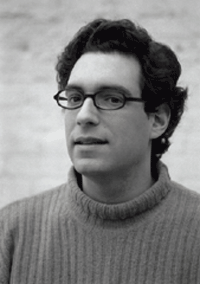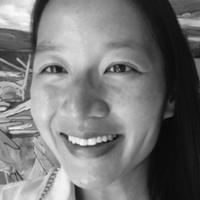
- The Big Book of Pop Culture: A How-to Guide for Young Artists
- Annick Press 2007 (2007)
Reaching for the stars is a sham, says Hal Niedzviecki in his latest book, The Big Book of Pop Culture. Shows like American Idol showcase a "false model" of talent, and don't help people at all.
Niedzviecki has published The Big Book of Pop Culture as an antidote. Through culture commentary and do-it-yourself tips, the book guides readers through projects like how to start a band, publish a zine, create a podcast and build a website.
With the end of a school year on the horizon, he says it's high time to start experimenting. "You can tell [your parents] that you are learning more making your zine or podcast or movie than you would in a thousand years working at Pizza Hut," Niedzviecki writes.
Niedzviecki talked to The Tyee about pop culture myths, Facebook blues, and how kids can really be famous. What follows are excerpts from the conversation.
On why 'American Idol' kills dreams
"[Mainstream] pop culture is all about finding your own talent and reaching for the stars: this American Idol. blueprint of 'I've been singing all my life, I'm an amazing singer. I just have to wait until someone recognizes my talent and brings me to the forefront' doesn't help people and it's a false model.
"These are all sort of pop culture myths -- people invariably think that growing up and achieving their dreams means growing up to be part of some kind of mass media art. Unless they're getting a lot of attention for what they do, [they think] they're a failure.
"The mass media is a restrictive media that only works by closing down avenues instead of opening them up.
"[The solution is to] simply take pleasure that you're creating something or putting something into the community and finding some way to think of new issues that are ways to communicate with your peers.
On the worst thing in high schools today
"A scene that still haunts me is when I went to a self-esteem session held at a Parkdale [Toronto area] high school. Parkdale is a very multicultural, relatively low-income neighbourhood. And this self-esteem, self-proclaimed teen guru held an assembly for the entire school.
"She basically showed clips of pop stars who said when they were in high school, they were losers. And when they believed in themselves, they were winners.
"'If you believe in yourself, you will be a winner:' this still haunts me, this idea of presenting this concept to kids in a school environment as a kind of truism.
"'One plus one equals two. Self-esteem and believing in yourself equals fame and celebrity.' That's one of the most prevalent things we're seeing in schools now.
"There's a lot of compliance with the pop culture myths. Because they're easy to teach, they're easy to accept, and they have a kind of saccharine, feel-good happiness to them.
"It's a lot harder to sit a lot of kids down and say, 'You can work really hard, but you might still not find success.' And what is success? That's going to be a lot harder than an hour-long session in the school auditorium about self-esteem."
On Facebook falsities
"Young people are spending incredible amounts of time adding to their profiles, subtracting, putting up a new song, deleting a song that is no longer representative of themselves, putting up pictures of the party that they went to, instant messaging their friends either publicly or privately.
"We're creating alter egos who are not necessarily us, but whom we'd like to have other people think we are.
"You have more options to present who you are. For socially awkward teenagers, this can be a real boom.
"But this is an extremely narcissistic, celebrity-attuned process where people seem to really be interested in their look and their style. Again, it's a worry that people are doing things they don't understand for reasons they haven't thought about. People need more of an idea of why they're doing these things, what the forces are in the background, and how they can manipulate these forces to get what they want out of them."
On mainstreaming the underground
"This myth of the edgy and alternative -- that you can be somehow against the man by producing some sort of underground and cultural work. That's a myth that's stuck around a long time.
"There's all these myths about pop culture and one of them, of course, is selling out and keeping true to yourself, being edgy and alternative versus bland and mainstream. These are a lot of things that haven't been true for a long time, and they are things that have been less true now.
"There is no taste barrier anymore. Everything is open to the mainstream and you're not being edgy and alternative by doing things that you think are embarrassing or disgusting or using a lot of dirty language."
On what kids should know
"One of the things you have to learn is what happens when you set out to be creative on your own terms is where that takes you. It takes you down all kinds of interesting paths. How to do things, how difficult it is, for instance, to create special effects, to achieve the kind of seamless acting you see on TV.
"You realize that the fakery hides so much of this stuff.
"And then you have the issue of getting it out there in the world, and you realize how excluded you are from simple things like your community convenience store or your local grocery store or even your school and your friends. It's so hard to get people noticed. The whole system is set up so you simply cannot get your work out in the world in a way that you think you can.
"That's an incredible learning experience for someone. At the end of the day, it's more positive than negative. You have to think about what your goals are. What needs to be thought out."
On being normal
"What I keep saying in the book is, you're not going to succeed. Not in conventional pop culture sense, you're not going to make your millions by running around on MTV in your panties.
"Go out there, talk about your friends, your family, your school, your community. Don't sit around to wait for people to notice your incredible talent.
"Practice is great, but not if your goal is to hone your immense genius. It has to come from within you, and feel like that's what you want to do, and that's what you want to say. Be creative on your own terms.
"I think people can be very creative and have a lot of fun without needing to be geniuses or have some sort of exceptional ability. Without being some sort of cultural radical in opposition to the so-called mainstream.
"The book is filled with examples of ways we can produce interesting culture without having to be selected as the greatest director of all time, and sent to film school. It's definitely a question of 'Let's formalize the idea of creativity, and get out there and do things.'"
Related Tyee stories:
- The Perils of Do-It-Yourself CeWebrity
Even free, virtual fame has a price. - Shopping for Fame and Fortune
What does it mean that so many girls want careers as celebrity stylists? - MyCelebrityGradSpace .com
Prom is back, with a vengeance.





